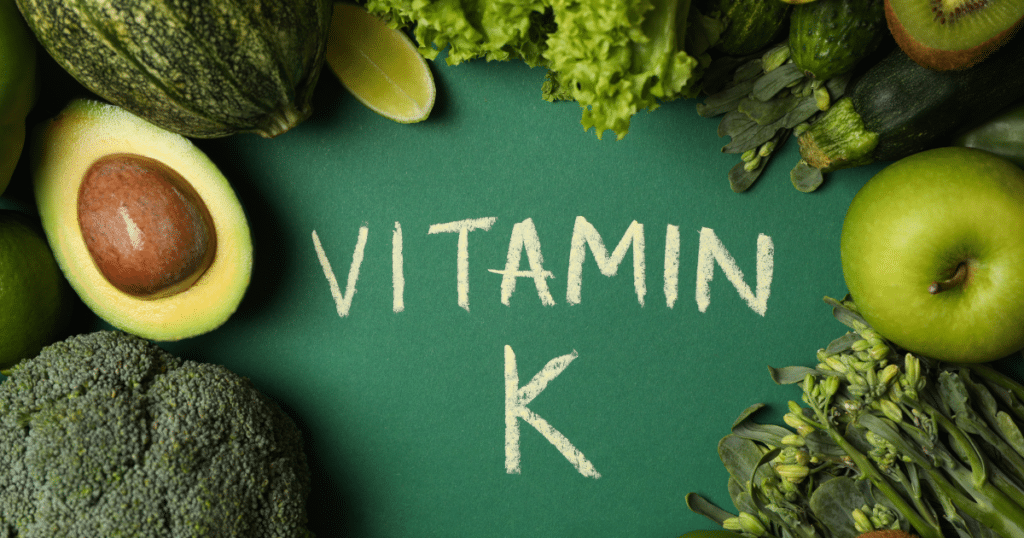Vitamins D and K for Bone and Cardiovascular Health
Our body needs essential nutrients in the form of micronutrients (vitamins and minerals) to perform important functions. While vitamins can be obtained through a healthy lifestyle, many people seem to be deficient in many micronutrients, such as vitamins D and K.
Vitamins are organic compounds that are essential for our bodies in order to function optimally and maintain health. Our bodies cannot produce vitamins themselves, so we must take them via our daily diet as well as through proper supplementation.
The advantage of utilizing a supplement form is that you can easily fill in any nutritional gaps you may have. Many people may find it challenging to get all of the micronutrients they need through their diet alone if they aren’t consuming a wide variety of food, and in some cases, in a fairly high volume.
In this article, we will discuss and focus on two of the most important fat-soluble vitamins out there that many may find themselves deficient in – vitamin D and vitamin K.
Table of contents

What is Vitamin D?
Vitamin D is vital for strong bones as it helps our body take up and use calcium from the foods we consume. Vitamin D is also known as the “sunshine vitamin,” as it is produced in our skin when we are exposed to direct sunlight. Vitamin D is a fat-soluble nutrient, essentially a family of compounds that consists of vitamins D1, D2, and D3.
Related Article: Kids and Bone Health
Unfortunately, many people (without them knowing until they notice some changes to their mood and health) don’t realize that they are deficient in vitamin D. As mentioned earlier, our body can produce vitamin D when we are outside taking in sunlight, but other than that, you’ll need to get it via certain foods and supplements.
Vitamin D has various functions, such as:
- The regulation of calcium and phosphorus absorption
- Improving immune system function
- Enhancing the growth and development of teeth and bones
- Providing resistance against certain diseases
- The ability to help reduce depression
- Improving mental health and overall mood
- Helping improve weight loss
Those who suffer from a chronic vitamin D deficiency may find themselves faced with bone issues such as osteoporosis or osteomalacia.
What is Vitamin K?

Vitamin K, similar to vitamin D, belongs to a group of fat-soluble vitamins that plays an important role in bone metabolism, blood clotting, and the regulation of blood calcium levels.
Our body needs vitamin K to create prothrombin, a protein and clotting factor essential in bone metabolism and blood clotting. Deficiency in vitamin K is not extremely common but can happen. When deficiencies occur, in some cases, it can increase clotting time which can lead to hemorrhage or excessive bleeding.
Vitamin K has various benefits for our body and overall health. Here are some of them:
- There appears to be a link between lack of vitamin K and osteoporosis
- Studies say that vitamin K supports the maintenance of the strength in our bones and improves density
- Decreases the risk of fractures
- It is good for cognitive health and has been linked with better episodic memory in older adults
- Vitamin K helps to keep blood pressure low by minimizing mineralization, a process where minerals can build up in the arteries
- Vitamin K can also help support heart health
Now that we know how vitamins D and K are related to bone and cardiovascular health, let’s look at some common cardiovascular issues that people face.
How Do Vitamins D and K Help Improve Bone and Cardiovascular Health?

Vitamins D and K are the dream team when it comes to improving bone and cardiovascular health.
Cardiovascular health issues affect a lot of people around the globe and, according to the WHO, account for at least a third of all deaths worldwide.
It’s important to understand the potential synergistic interplay of vitamins D and K to understand their functionality together. One of the most important factors is that vitamin D triggers the production of vitamin K-dependent proteins present in our body.
Once created, the proteins will need vitamin K to function at an optimum level. In this way, our body makes sure that the calcium level is well distributed throughout. Without the presence of vitamin K, the proteins cannot carboxylate in order to function properly.
Vitamin D and vitamin K work together to make sure calcium is distributed throughout our bodies. As vitamin D plays the vital role of stabilizing bodily calcium levels present in our blood, vitamin K makes sure the calcium is distributed to our bones.
They can only work well if they are present in adequate amounts and combinations. Research shows that low levels of vitamins D and K may increase systolic blood pressure and can increase your risk for hypertension. Therefore, in the right proportions, both of the vitamins can be an integral part of maintaining a healthy cardiovascular system and better bone health.
Click here to continue reading…


*Disclosure: This article may contain affiliate links or ads, which means we earn a small commission at no extra cost to you if you make a purchase through these links. These commissions help support the operation and maintenance of our website, allowing us to continue producing free valuable content. Your support is genuinely appreciated, whether you choose to use our links or not. Thank you for being a part of our community and enjoying our content.
PLEASE CONSIDER SHARING THIS ON YOUR SOCIAL MEDIA TO HELP OTHERS LEARN MORE ABOUT THIS TOPIC.





